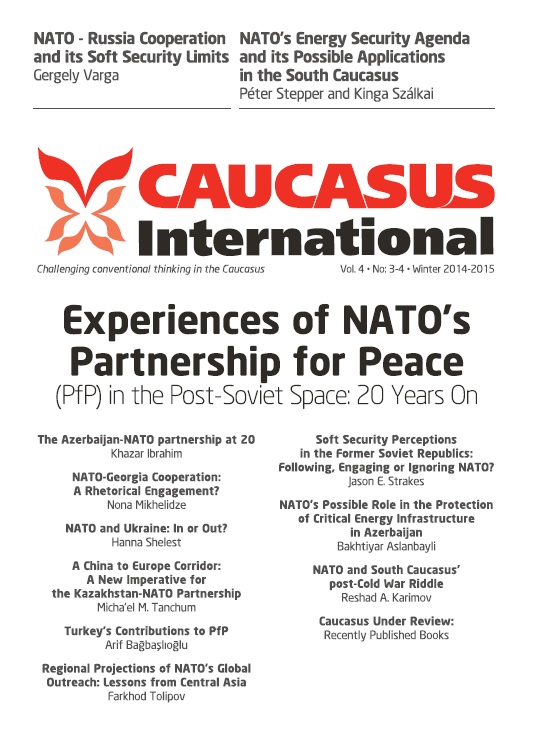NATO and South Caucasus’ post-Cold War riddle
This article provides a brief analysis of NATO’s post-Cold War cooperation with the South Caucasus countries, arguing that when it comes to the South Caucasus, NATO has been pursuing a limited role, mainly confined to the goals defined in the Individual Partnership Action Plans (IPAPs) and the involvement of the South Caucasus countries in related activities. According to the author, NATO’s strategy in the South Caucasus has its roots not only in the political and security dynamics of the regional states, but also in Russia’s substantial role in the region, and the ways in which NATO-Russian relations have been shaped and enacted as a result. At the same time, the crises in the Middle East and the role of Western countries there together with the withdrawal of NATO and the U.S. troops from Iraq and Afghanistan, require major revisions of NATO’s approaches. The current global security complex calls for the organization to step up its foreign policy efforts. In conclusion, the author emphasizes that as NATO continues to face a range of global challenges it cannot tackle alone, its relations with the states of the South Caucasus should serve as a reminder that its choice of partners in the currently fluid situation may determine the future of the region.
Latest news
- 03/17/2020 Call for Submission: “Non-Alignment Movement and Its Perspective in International Affairs”. Deadline: 1 July 2020 2626 views
Popular articles
- 02/24/2020 The Role of Irredentism in Russia’s Foreign Policy 2536 views
- 02/24/2020 Construction of sub-national identity vis-à-vis parent state: Gagauz case in Moldova 2218 views
- 02/24/2020 The Conflict in Ukraine - The Geopolitics of Separatism and Divergent Identities (Commentary) 2073 views
- 02/24/2020 The Role of the Soviet Past in Contemporary Georgia 2044 views





